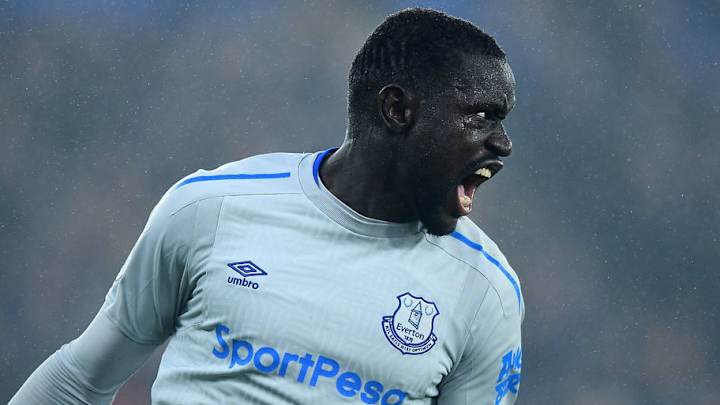Oumar Niasse Diving Charge Highlights FA's Inconsistent Decisions

It's a decision which has been labeled as "nonsense," "outrageous" and "farcical" by Evertonians on social media.
Oumar Niasse has become the first Premier League player to be charged for 'successful deception of a match official' following Saturday's 2-2 draw with Crystal Palace, and the striker now only has until 6 p.m. local time on Tuesday to respond to the allegations.
In truth, Niasse did go down softly in the box to win a penalty in the fifth minute of the contest - the Senegal international tumbling under forearm contact from Eagles defender Scott Dann.
If Niasse is found guilty, he faces a two-game suspension for the Toffees that would begin immediately - a decision which would rule him out of clashes with Southampton and West Ham, or the Hammers and Huddersfield depending on when the outcome is achieved.
It is the Football Association, though, that should really be looking at its own charge and wonder if this is truly the marker for which retrospective action should be taken against players.
Watford star Richarlison and Manchester City winger Bernardo Silva have been accused of conning referees into awarding penalties for their respective teams in recent times, with spot kicks awarded against Arsenal and Burnley as a result.
Neither player was charged with deceiving match officials even though their simulated dives were just that - dives - and bear no comparison to Niasse's, who was actually touched by Dann before hitting the deck.
So where was the FA's responses to either of those incidents? There wasn't any. And it is for this very reason why the word 'consistency' will be bandied about again by Everton fans, pundits and on sports programs in the immediate future.
The FA and referees have continuously been in the spotlight over how inconsistent they have been with regards to penalty decisions, red card offenses, tackles and retrospective action and still bear the brunt of plenty of stick for not making their rules black and white.
It is a club that they are - ironically - consistently beaten with, and accusations of bias will continue to haunt them until there is a significant change in how both parties operate on and off the field.
For Everton, losing Niasse - its top scorer - could be the difference between winning or losing its upcoming league games and, while Palace fans will argue that he made the difference in denying them all three points by winning the penalty, every football fan knows that it isn't as simple as that.
Had Christian Benteke taken one of his two glorious chances at the end of that encounter, we may not even be here discussing this incident. Yet we are, and what it primarily boils down to is incompetency on the FA's part over what should be deemed as 'successful deception' and what shouldn't.
There's no doubt Niasse will be banned, and Everton made an example of. The FA, in its ivory tower, will once again though be lambasted for a lack of consistency - and it will be deserved.
